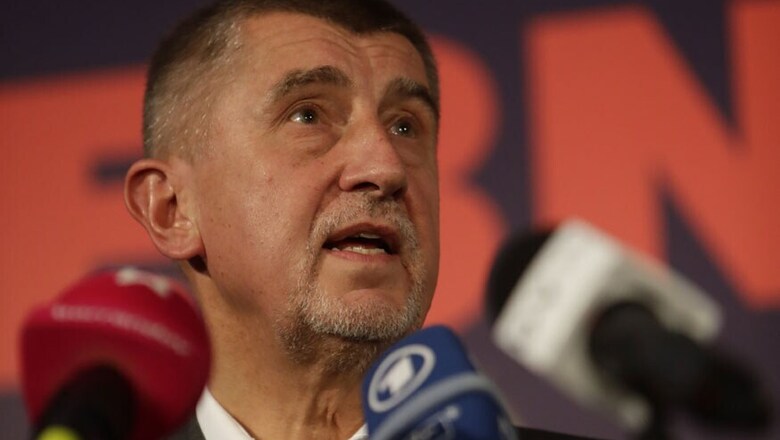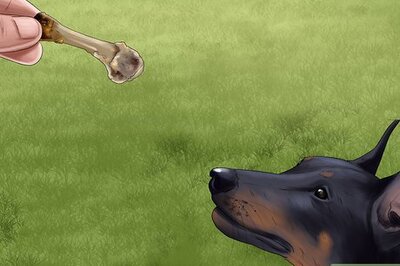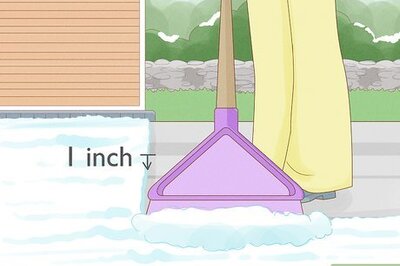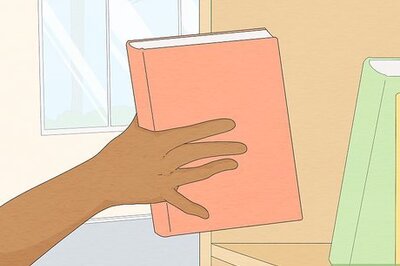
views
Prague: With voters upset over traditional parties and orders from Brussels, billionaire populist Andrej Babis, dubbed the "Czech Trump", clinched victory in the Czech Republic's election on Saturday, while eurosceptics and an anti-Islam group backed by France's National Front made strong gains.
State election officials citing results from 99.6 percent of polling stations said Babis's anti-corruption and anti-euro ANO (Yes) movement was ahead with 29.7 percent support (78 parliament seats) followed by the eurosceptic right-wing ODS party on 11.3 percent. Turnout was at 60 percent.
Despite the country's economic success, analysts say many Czechs who are heavily in debt or working long hours for low wages feel they have been left behind and are turning to populist, eurosceptic and far-right anti-EU parties to vent their ire.
Far-right and far-left anti-EU parties made gains in the fragmented vote that put nine parties into the 200-seat Czech parliament with few obvious coalition allies among them, something analysts warned could trigger instability, even chaos.
ODS leader Petr Fiala ruled out going into coalition with ANO, insisting it will not be able to deliver on its promises.
The anti-establishment Pirates led by the dreadlocked Ivan Bartos made their debut in parliament, scoring 10.8 percent and coming in third.
The far-right Freedom and Free Democracy (SPD) party of Tokyo-born entrepreneur Tomio Okamura scored 10.7 percent support more than doubling its seats in parliament on strong anti-EU, anti-migrant and anti-Islam rhetoric, similar to surging far-right parties in neighbouring Austria and Germany.
France's far-right National Front Marine Le Pen sent Okamura a message of support.
'Safe, stable country'
A 63-year-old Slovak-born chemicals, food and media tycoon, Babis has vowed to steer clear of the eurozone and echoes other eastern EU leaders who accuse Brussels of attempting to limit national sovereignty by imposing rules like migrant quotas, he favours a united Europe and balks at talk of a "Czexit".
Full results showed the anti-EU Communists took fifth spot winning 7.8 percent support, while the Social Democrats (CSSD) who head the outgoing coalition government took a bruising, coming in sixth with 7.3 percent of the vote.
Social Democrat party leader Lubomir Zaoralek appeared to rule out forging a new coalition with Babis's ANO. The two parties currently form the outgoing coalition along with the smaller KDU-CSL Christian Democrats who scored 5.8 percent support.
"I think the number of votes suggests above all we'll end up in opposition. I think it's hard to negotiate about a government with these votes," Zaoralek told reporters in Prague.
KDU-CSL leader Pavel Belobradek also said his party was not keen on cooperating with Babis, due to his indictment on allegations of EU subsidies fraud.
Outgoing Prime Minister Bohuslav Sobotka, who's left-wing Social Democrats suffered a stinging defeat, was shell-shocked by the rise of the far-right.
"How is it possible that in the Czech Republic, in a situation when the country is doing very well, when we are a stable, safe country, we have achieved many things in the social sphere in the past four years, people are increasingly in favour of extreme views?," Sobotka told reporters as results rolled in.
Tomas Lebeda, a political analyst at Palacky University in the central city of Olomouc, told AFP he saw the SPD's gains "as a threat to liberal democracy" in this EU member of 10.6 million people.
'Radical change'
Voting in Prague, pensioner Alena Kolarova praised Babis for "restoring order in public finances and tax collection" during his three-year stint as finance minister that ended in May.
"I think his policy is for the people," she told AFP.
With joblessness at 3.8 percent in September, the Czech economy which is heavily reliant on car exports is slated to grow by a healthy 3.6 percent this year.
Despite the strong economy, young Prague voter Jiri Chaloupek said he chose the SPD as "this country needs a change, a rather radical change."
Analyst Lebeda said "we have a very strange atmosphere with a number of emotions that absolutely do not correspond to the social and economic reality."
"I'm asking myself what the elections would look like if we weren't in such good shape economically."
Two small centre-right parties also entered parliament, each scoring around five percent of the vote.




















Comments
0 comment